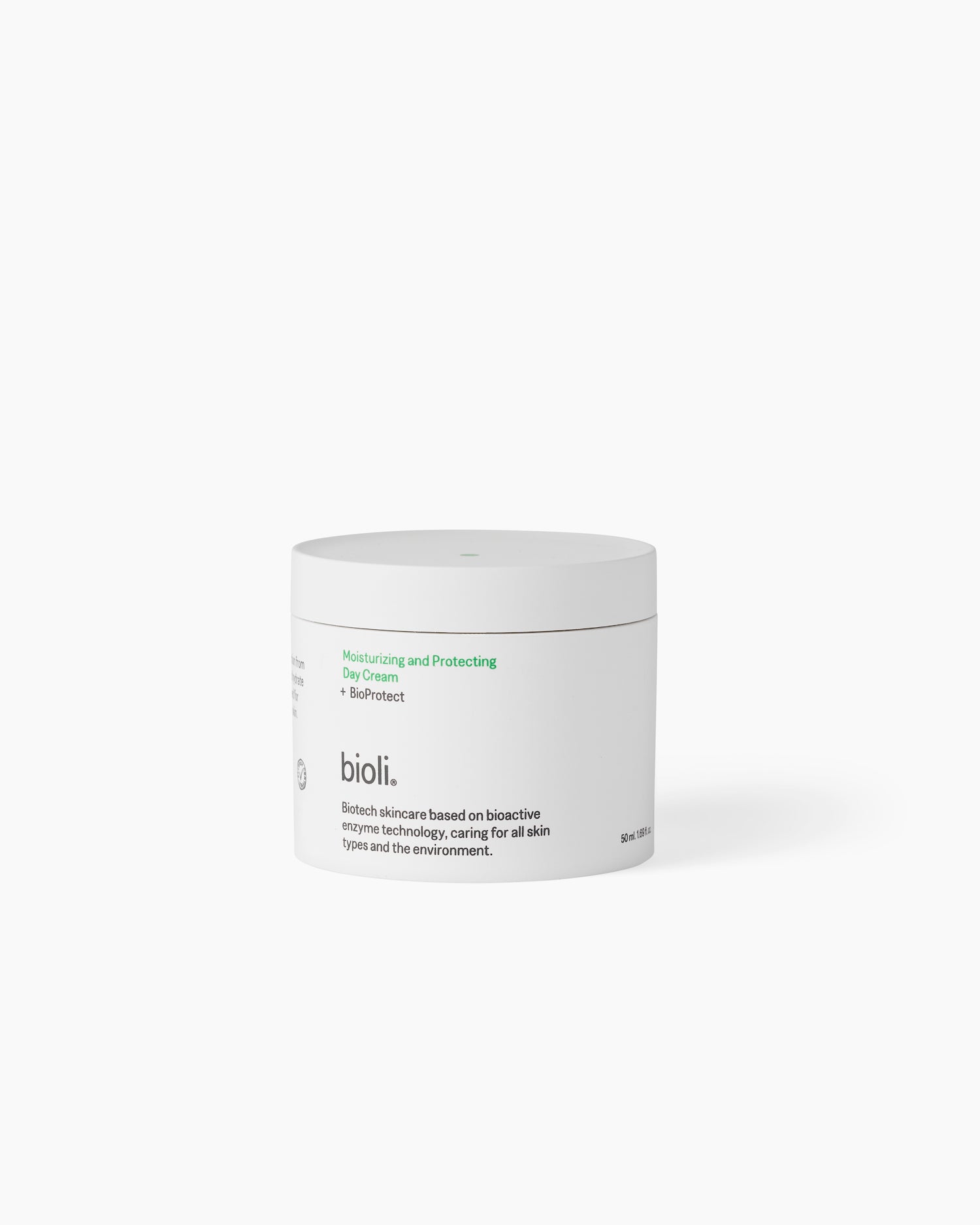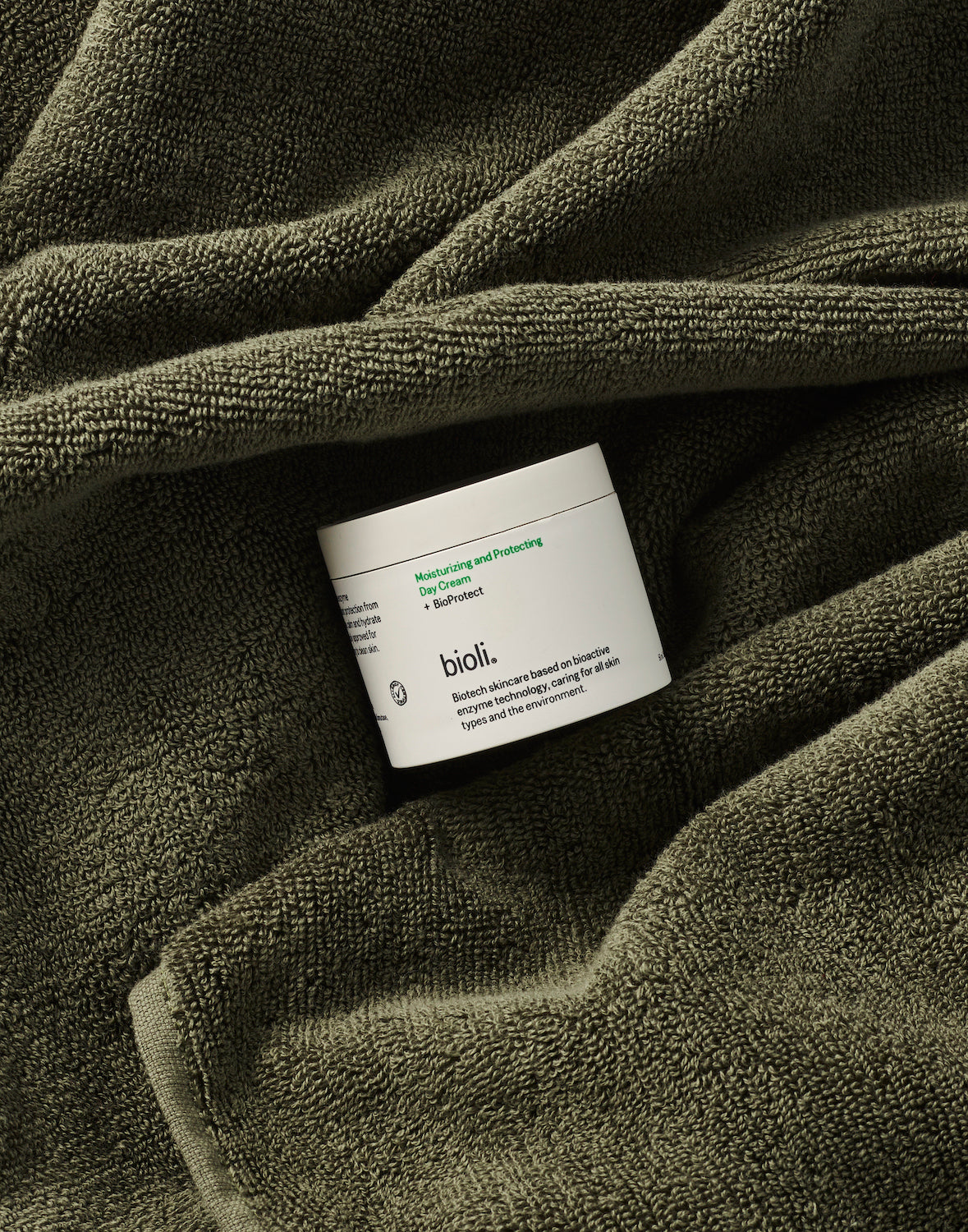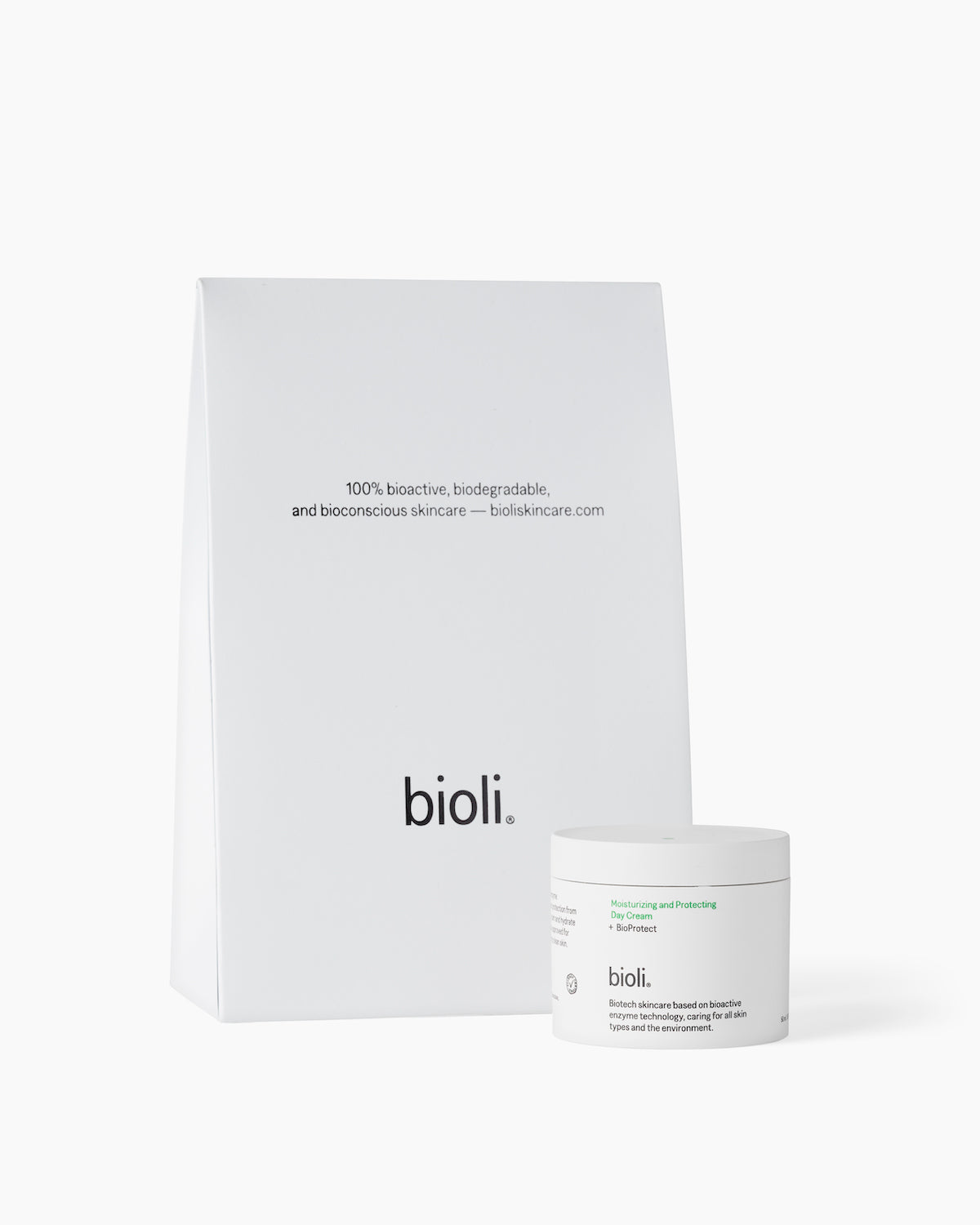What are enzymes?
First, what are enzymes? Enzymes are proteins produced by all living organisms that act as biological catalysts, accelerating chemical reactions essential for life. Enzymes are harnessed across many industries including food production, pharmaceuticals, and cleaning—for their efficiency and versatility.
10 benefits
In skincare, learn here about lab-made enzymes:
- Inspired by nature: Lab-made enzymes mimic natural processes without depleting natural resources.
- Mild yet effective: Enzymes are gentle on the skin while remaining highly efficient.
- Maintain pH balance: Enzymes help maintain the skin's pH balance, promoting overall skin health.
- Tailored effects: With their targeted approach, enzymes can be customized to address specific skin concerns.
- Potent antioxidant properties: Enzymes act as potent antioxidants, protecting the skin against free radicals.
- Exfoliating without side effects: Enzymes exfoliate the skin without causing the typical side effects associated with traditional exfoliants.
- Increase hydration and absorption: Enzymes enhance hydration and improve the absorption of subsequent ingredients.
- Safe for various conditions: Due to their targeted effect, high purity, and controlled formulation, enzymes are safe for individuals with weakened immune systems, as well as for pregnant or breastfeeding women.
- Suitable for all skin types: Enzymes are beneficial for sensitive skin, including acne-prone and mature skin.
- Environmentally friendly: They require significantly fewer resources* compared to:
- Vitamin C (for antioxidant protection) – 30% less land use, 80% lower CO₂ emissions, and 80% less fossil energy consumption across 17 out of 18 impact categories.
- AHA/BHA (for cleansing and exfoliation) – 60% less land use, 90% lower CO₂ emissions, and 90% less fossil energy consumption across all 18 impact categories.
- Plant-sourced enzymes – 50% less land use, 30% lower CO₂ emissions, and 10% less fossil energy consumption across all 18 impact categories. Additionally, they are biodegradable, leaving no harmful residues, and do not compete with food sources.
Enzymes bring the perfect balance of efficacy, safety, and sustainability to skincare. From their targeted action to their eco-friendly footprint, they offer a smarter alternative to conventional ingredients like Vitamin C and AHA/BHAs. As beauty trends shift toward science-backed, sustainable solutions, enzymes are proving to be a true skin-loving innovation. Ready to make the switch?
*Bioli data obtained in July 2024 through collaborative research using the Open LCA assessment tool (Method: ReCiPe2016).







